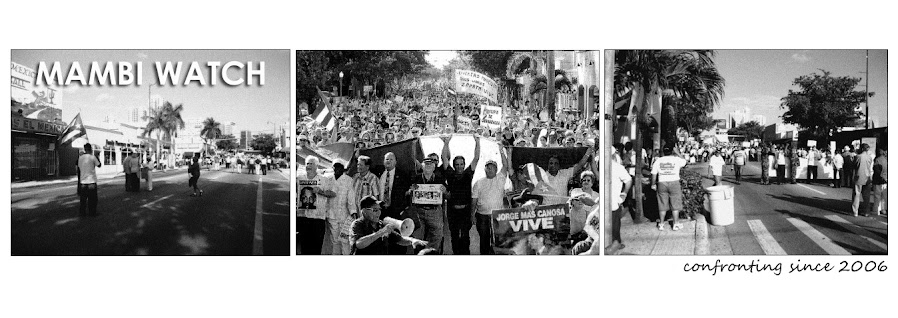 But, hard-liners are missing the big picture surrounding the Ana Belen Montes case. According to a study of reported spy cases from 1947 to 2001 [PDF], the number of American acts of espionage against the US government has significantly decreased since the Cold War ended. The number of Americans who spy against their own country has reduced to the lowest recorded levels ever (and from the highest levels ever recorded during the early eighties). The study also found, from the few cases reported during the 90s, that American spies are far more likely (near 70%) to be volunteers instead of recruits, and be more motivated by "divided loyalties."
But, hard-liners are missing the big picture surrounding the Ana Belen Montes case. According to a study of reported spy cases from 1947 to 2001 [PDF], the number of American acts of espionage against the US government has significantly decreased since the Cold War ended. The number of Americans who spy against their own country has reduced to the lowest recorded levels ever (and from the highest levels ever recorded during the early eighties). The study also found, from the few cases reported during the 90s, that American spies are far more likely (near 70%) to be volunteers instead of recruits, and be more motivated by "divided loyalties."By reviewing the facts, it should be evident that as long as nations are in some kind of political conflict (like during the Cold War), acts of criminal espionage, or officially sanctioned government espionage, will remain an indispensable part of international intelligence gathering. If one wishes to reduce criminal espionage, then part of the solution lies in efforts to improve international relations, especially between regional neighbors. Unfortunately, hard-liners generally block those efforts, or instead prefer to exploit those conflicts.
Like Scott Carmichael, Chris Simmons believes that Cuban intelligence poses a threat to the US because "Havana has an insatiable appetite for information about U.S. military operations as well as U.S. intelligence operations." Simmons is a former US Counter-Intelligence officer (from 1987-2004) who also worked with Carmichael in the Ana Montes case, and now runs his own company (Cuban Intelligence Research Center) that specializes in "identifying and countering or defeating Cuban Intelligence."
Simmons has recently appeared in the news with headlines like: "Cuba Is Expanding Its Overseas Spy Network, Top Intelligence Expert Says" and "Cuban Spy Network to Ramp Up Its Work in US, Experts Say" or "Cuban Intelligence Is a Threat to the US. But, if you read the articles carefully, there's no beef. Like Carmichael, Simmons provides a lot of speculation rather than evidence.
The substance of Simmons' warnings rely on his investigation, and events following, from the Montes case, which it seems he never fails to mention. But, the premise of his warnings are rooted in the hard-line politics of the US and its designated enemies. From this premise, Simmons hardly needs evidence to throw more fuel into the fire. When asked by EFE if he had any proof of his allegations, he told them "there's no tangible evidence." He told this to reporters after an almost-2 hour speech on Capitol Hill arranged by Republican hard-liners like Rep. Ileana Ros-Lehtinen and Rep. Thadeus McCotter, Chairman of the Republican Policy Committee.
Ironically, while some fear the "threat" of foreign spies, there's no hesitation by the US to encourage espionage aimed at our designated enemies. Yesterday, it was reported that the US government has approved the recruitment of Saddam Hussein's former spies to infiltrate Iranians in Iraq. Despite a law that forbids the hiring of former Baathists into the new Iraqi government (because of human rights violations), Dan Maguire, a U.S. intelligence adviser to the Iraqi Ministry of Defense, believes there's "a lot of logic" to this operation.
In the case of US-Cuba relations, those who spread fears over the threat of Cuban intelligence want to manipulate the facts over international relations. The US, with its vast global resources and influence, can easily improve its relationship with the Cuban government and its neighbors. But, the US instead spends exorbitant amounts on national defense, which also includes its intelligence services, and this (along with foreign policy) is seen as a threat to its neighbors and global targets.
With US-Cuba relations now approaching a moment of potential improvement, some hard-liners may become more desperate in their attempt to sow distrust between the two governments and its citizens. By using tactics that exploit fears, hard-liners are encouraging public paranoia whose consequences can be extremely dangerous and perhaps permanently damaging to those who become its victim.
[Part 1]

No comments:
Post a Comment